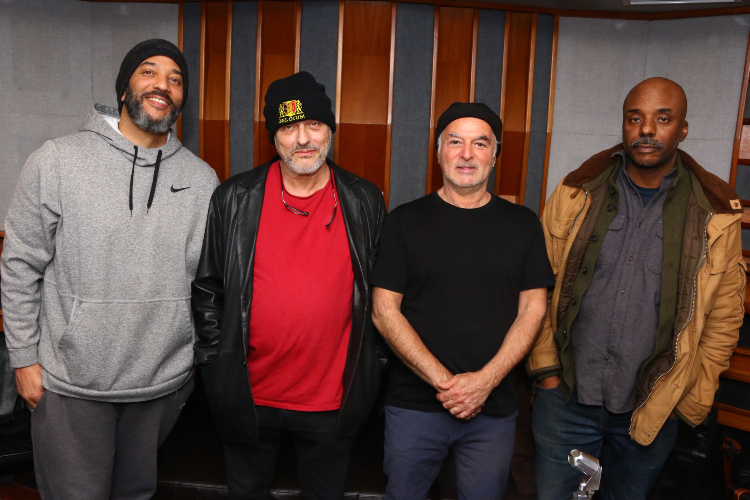|
Getting your Trinity Audio player ready…
|
For the last quarter of the 20th century, Italian labels Black Saint and Soul Note issued an influential series of recordings by Black American artists, including the World Saxophone Quartet and its members Hamiet Bluiett, Julius Hemphill, Oliver Lake, and David Murray. These records were hardly blowing sessions, but their loose-limbed vibe brought the expressive freedom of the bandstand and the clarity and discipline of the studio into a memorable balance. That vibe is very much present on Avram Fefer’s Juba Lee (Clean Feed, 2022).
The nine compositions, all by Fefer, give the leader and his foil, Marc Ribot, plenty of elbow room to stretch out. The leader uses his to rhapsodize over modes with a forthright and slightly husky tone, mostly on tenor saxophone. Ribot is often a second horn on the front line, twinning with Fefer on the heads. The template is established on the opening “Showtime,” a bouncing groove in eight plus six where a rough-toned Fefer occasionally sounds like a jazz guy slipping into R&B tenor territory while Ribot comps like a rock player might on a jazz session (for the record, Ribot has asserted that as a lefty playing right-handed, he couldn’t be a jazz guitarist if he tried). His solos are almost always on the blues scale, and his tone defiantly acid-dipped. He’s done this sort of thing before, most notably on Spiritual Unity (Pi Recordings, 2005) and Live at the Village Vanguard (Pi Recordings, 2014).
The drummer on both those sessions was Chad Taylor, whose mile-wide beat swings as hard on compositions in additive rhythms (there are a lot of them) as he does on the bouncing calypso “Brother Ibrahim. Taylor’s hookup with bassist Eric Revis, who together have recorded with Fefer for more than a dozen years, recalls the peerless William Parker and Hamid Drake combination of looseness and power, and it’s perhaps the best thing about “Juba Lee.”
This formation released the excellent Testament (Clean Feed, 2019) right before the pandemic, and Juba Lee is essentially out of that bag. This time around, there is a little more modal blowing, a little more Ornette Coleman influence in the writing, and on “Say You’re Sorry,” a descent into rubato delta death-blues. And yes, Ribot is hair-raising here.
You won’t find Fefer’s name on many critics’ lists of mid-career tenor masters, but if he keeps making records like this, he’ll be hard to ignore. Rangy, freewheeling, and frequently provocative, Juba Lee is indeed something to celebrate.
Juba Lee is now available on Clean Feed Records. It can be purchased on Bandcamp.
Tracklist: 1. Showtime; 2. Bedouin Dream; 3. Sky Lake; 4. Juba Lee; 5. Brother Ibrahim; 6. Love is in the Air; 7. Gemini Time; 8. Say You’re Sorry; 9. Sweet Fifteen (for G.T.).
Personnel: Avram Fefer (alto and tenor saxophones, bass clarinet), Marc Ribot (guitar), Eric Revis (bass), Chad Taylor (drums).
Photo credit: Daryl Tilman







Leave a Reply